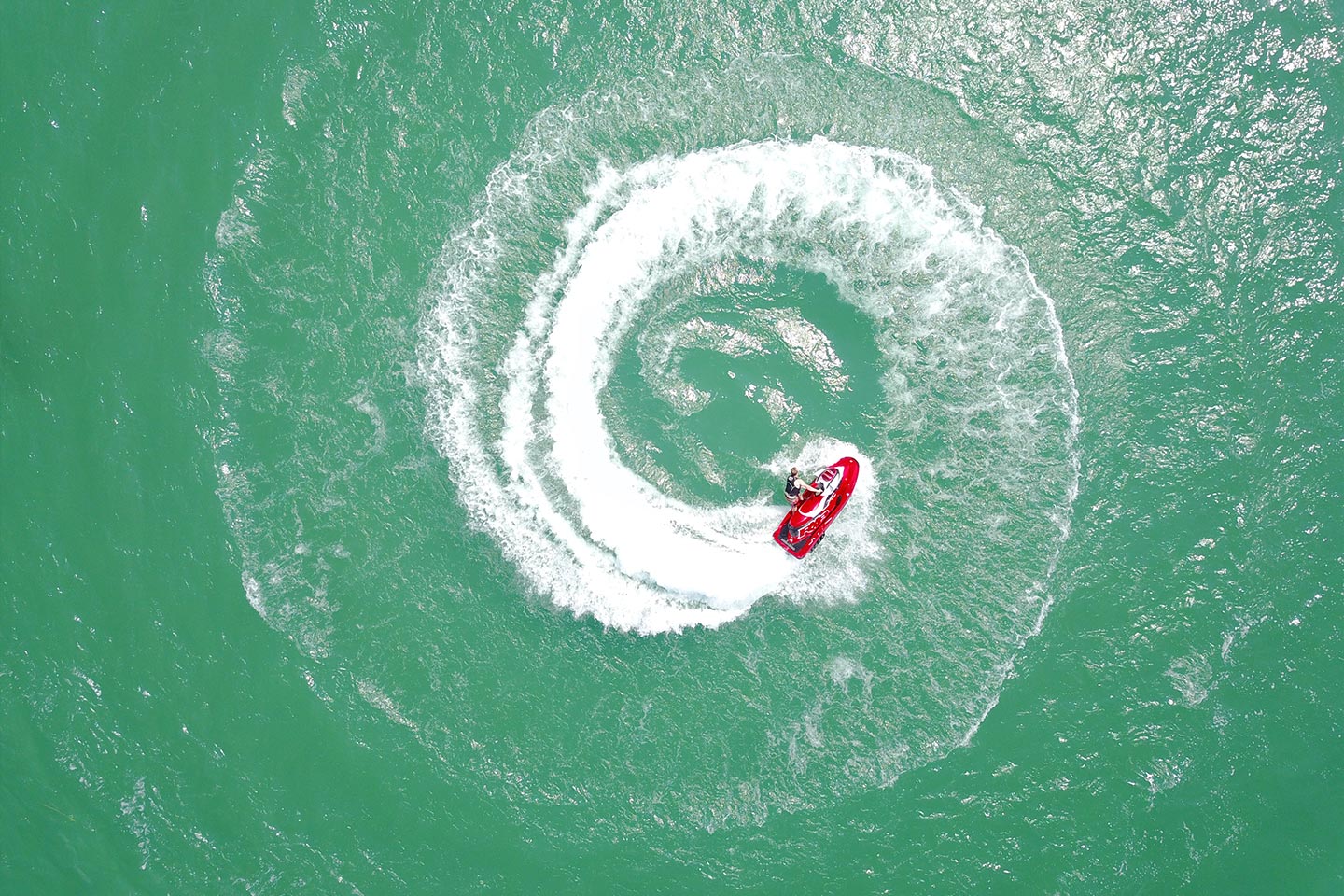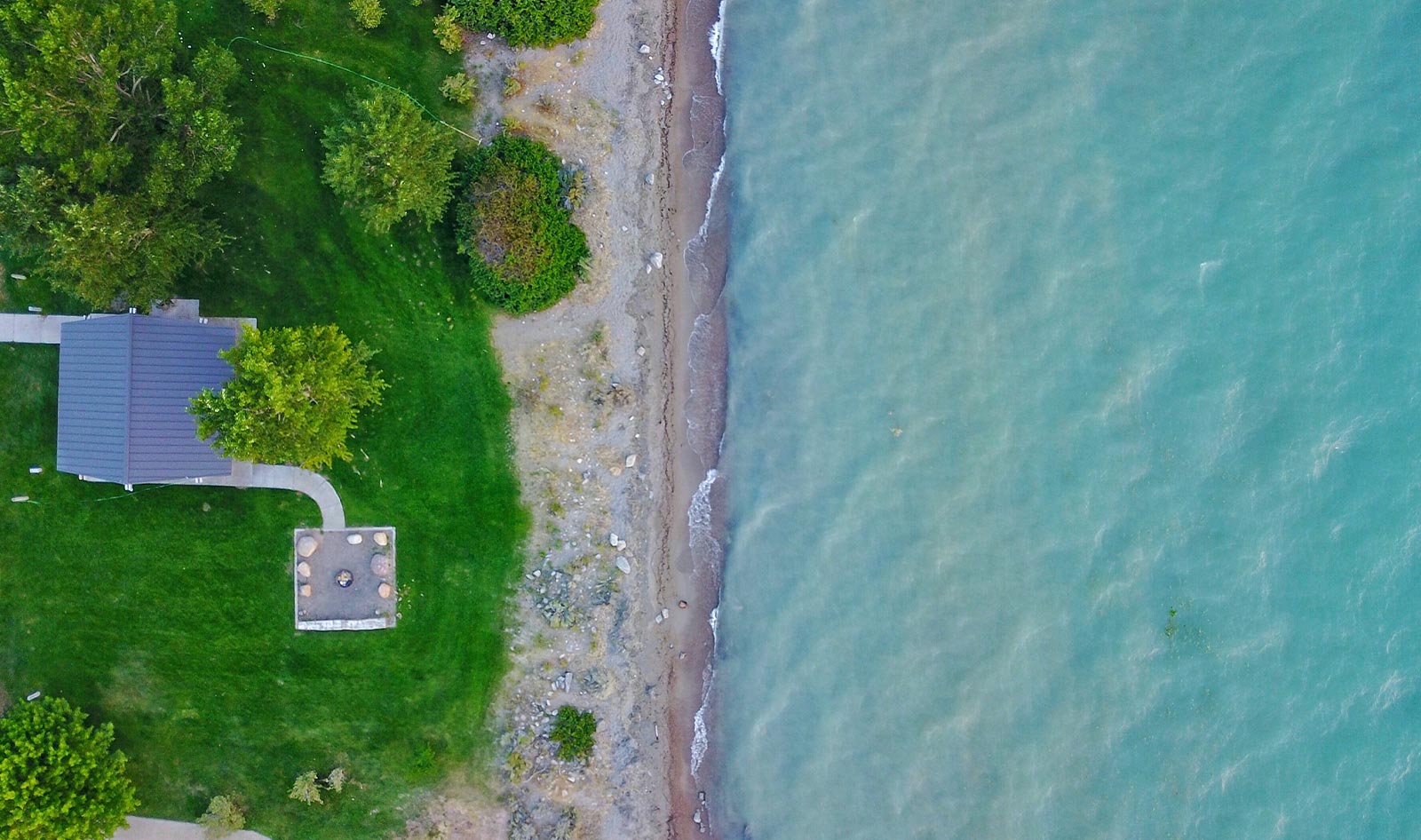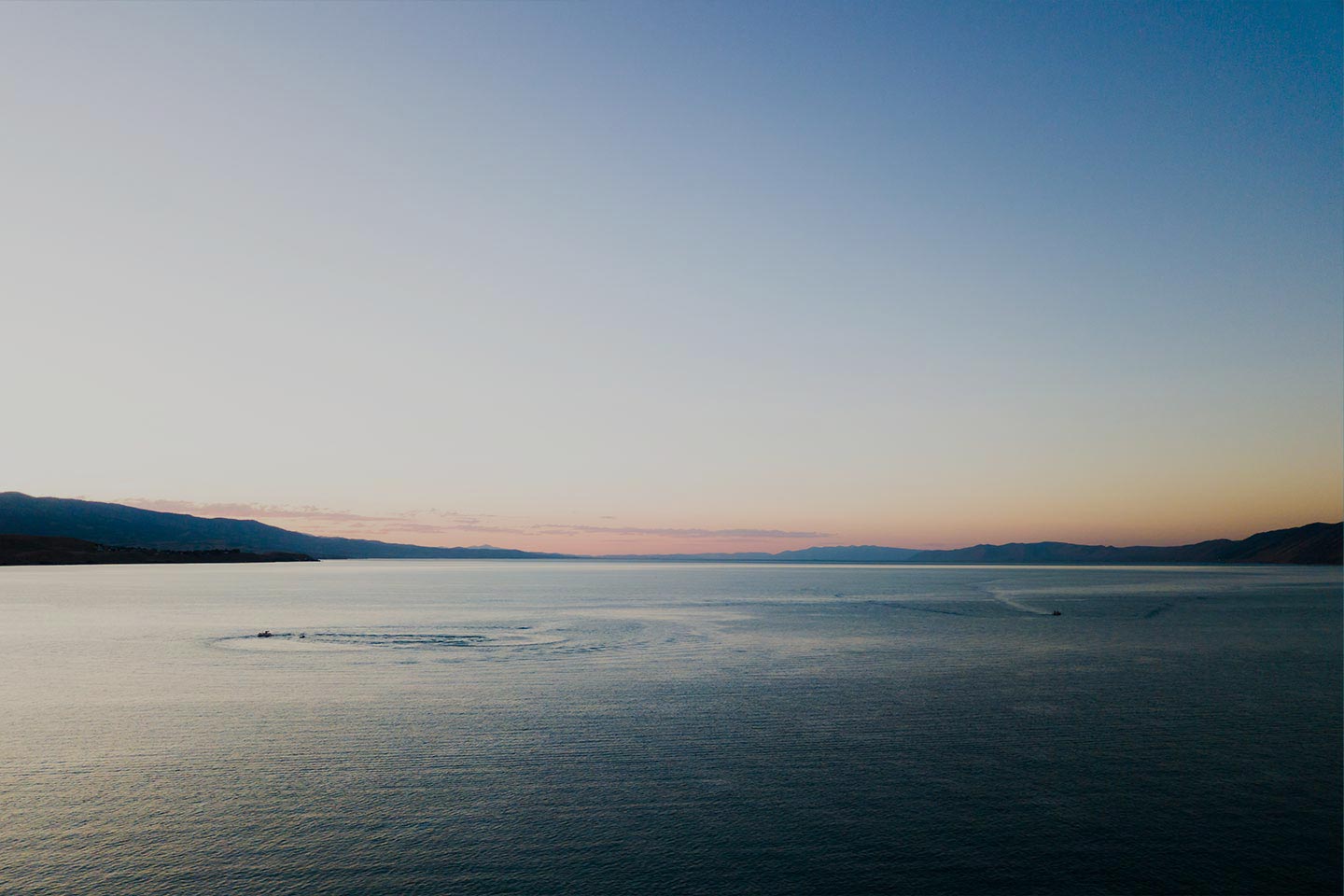A Beautiful Place
The warm sun shimmers off the rippled surface of Bear Lake, creating thousands of tiny flashes of brilliant light, showing off just one of her many moods and amazing colors. This is a special place for me. I love to sit quietly, looking out over the lake, soaking up the beauty and tranquility. I grew up just a short distance away, in Logan, and remember clearly the excitement I felt as a boy when we’d come over the summit of Logan Canyon and get our first glimpse of Bear Lake. I still feel that excitement today, more than half a century later.
My connections to Bear Lake grew even stronger when I married Susan Wakley in our senior year at Utah State. Susan’s grandfather, J.W. Hayward, was one of the early medical doctors in the Bear Lake area. His cabin in Fish Haven, which we now own, was one of the first summer cabins built on the lake. Bear Lake became our family destination of choice for summer vacations and our children, like their parents, have spent part of every summer at Bear Lake. I guess it’s not surprising that my feelings for this unique and special place run so deep and that I am committed to helping preserve and protect this unique resource.

-
The Beginning
The level of Bear Lake had fluctuated over the years but I grew increasingly concerned as the severe drought of the late 80’s and the early 90’s sucked the waters down to near record lows. In some places the lake had retreated nearly half a mile from its normal shoreline, leaving behind swamps of bulrushes and cattails and leaving most boat ramps and harbors well above the water line. There are a lot of special people who love Bear Lake and a few of us gathered at Jerry Phelps’s home in Garden City in the summer of 1993 to see if there was some way that we could help. Bear Lake Watch was born out of those discussions.
-
What can we do?
Our first meetings were filled with questions about what we could or should be doing. One thing that we all agreed on was that we could not just sit by and watch the lake drop even further. We had to do something early in that first year, our first president, Gary Bergener’s work load made it impossible for him to continue in that role and I found myself in that position. It didn’t take me long to find out how little I knew about “Water Rights” and “Water Law” and how emotionally charged water discussions could get. Those emotions were in full bloom at the Bear Lake Summit, which was held at Bear Lake West in the summer of 1994. Bear Lake county commissioner, Ron Law, had organized the summit to bring together a cross section of people with varied Bear Lake interests. At that gathering, we quickly realized that our vision of Bear Lake was vastly different from that PacifiCorp’s, and the irrigators, as well as that of the environmentalists or the river rafters.
The words I remember most came from one of the irrigators as he spoke to a TV news crew, at the end of a conference. When asked about the future of the Bear Lake he said, “its over water and we will do anything we want with it.”
-
The Battle Lines
are DrawnThe decisions regarding the use of the water in the Bear River Drainage and Bear Lake had traditionally been made by power and agricultural interests. As far as they were concerned, that was the way things should stay. The Bear River Commission, the tri state body that has jurisdiction over the Bear River/Bear Lake system was controlled by these same groups and their attitudes was “If it ain’t broken, don’t fix it.”
-
Getting a Seat at
the TableEven though Bear Lake Watch (BLW) included homeowners, business people, local residents and developers with a very real stake in what was happening at Bear Lake, no one would listen to us. We knew that if we wanted to have some impact on the future of Bear Lake we had to have some leverage.
BLW enlisted the support of the Land and Water Fund out of Boulder, Colorado. LAW was an Environmental Action Group that had helped other groups like ours. A young attorney by the name of Randy Weiner was assigned as our lead attorney. After visiting Bear Lake and reviewing our situation, he suggested that we had grounds to sue the Corps of Engineers for issuing a dredging permit to PacifiCorp without requiring an environmental impact study.
PacifiCorp had requested the permit using an exemption which allowed farmers to clean out their ditches and repair their irrigation facilities. One thing was clear, if the lake continued to drop it would be impossible for PacifiCorp to pump much water without dredging a channel. The situation for the down stream irrigators looked grim indeed.
I am not a fan of lawsuits and, as a group, BLW had decided that we would rather negotiate than sue anyone. But, we also realized that if we wanted that seat at the table, a lawsuit might be our best tool. We filed the lawsuit. We got their attention and were immediately attacked by PacifiCorp and the irrigators. Some of the name-calling and threats got personal.
The Bear River Canal Corporation, the largest water user in the system, launched a personal attack on me. In a letter a to their members they said, “Merlin Olsen is trying to steal your water.” And suggested that a good way to retaliate was to boycott the local Chevy dealers and mount a complaint to get me fired as a spokesman for the Rocky Mountain Chevy Dealers.
My attorney wanted to file a lawsuit claiming it was a “slam dunk” situation but I decided to at least sit down with the irrigators before I took any action. I arranged a meeting with the Bear River Canal Company and headed north to their offices in Tremonton, Utah. Expecting to meet with a few members of their organization. What I found when I got there was a more than thirty very angry irrigators representing all of the irrigation companies along the lower Bear River.
I did more listening than talking at that meeting, as they vented their anger and frustration and accused me of trying to take away their livelihood. When my turn finally came, I told them that I fully respected their water rights and wasn’t trying to steal anybody’s water. I also said that if they wanted to go to war, I was ready for that, but suggested that we sit down first and at least try to find some common ground before that happened.
Negotiations
With Bear Lake just two feet above it’s all time record low, real concerns about when the drought would break and Pacificorp’s ability to deliver irrigation water the following summer, we finally got to the table. Those early meetings were often punctuated with anger and emotion, but gradually we began to trust each other enough to find that we did have many things we could agree on.
Once we had convinced the irrigators that we respected their water rights and that we were not trying to steal anyone’s water, they began to understand that a healthy Bear Lake was more important to them than it was to us.
Our objective throughout the negotiations was to try to find a way to limit the fluctuations on Bear Lake. We also wanted greater accountability on the amount of water pumped out of the lake and voluntary cutbacks during low water years so that the lake could recover more quickly. The key players all had their own agendas, but we were able to come to an agreement that was acceptable to all concerned and the Bear Lake Settlement Agreement was signed on April 10th of 1995.
Special thanks should go to Carley Burton of PacifiCorp, Randy Budge, the Attorney for the Bear River Water Users Association and Jim Kimbal who represented the Bear Lake interests. Without their hard work and diligence, this agreement would never have been completed.

